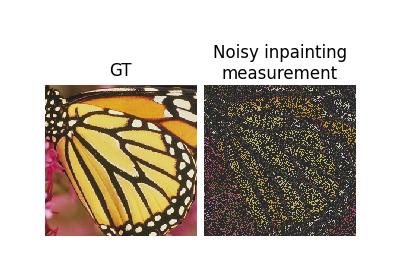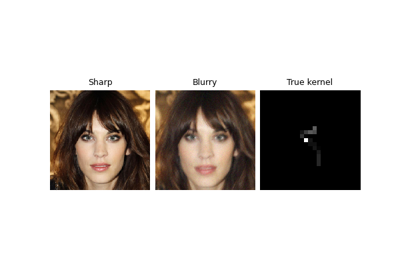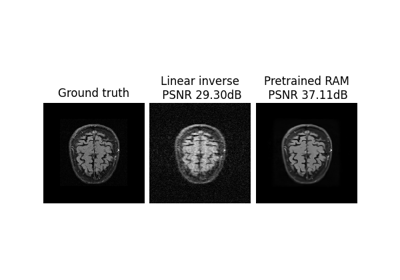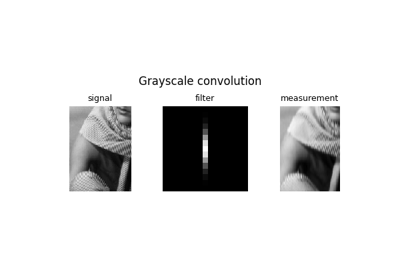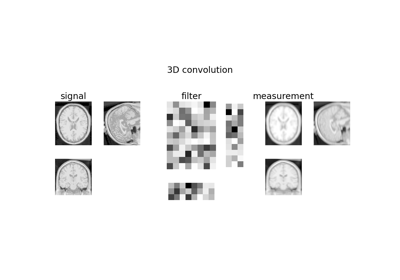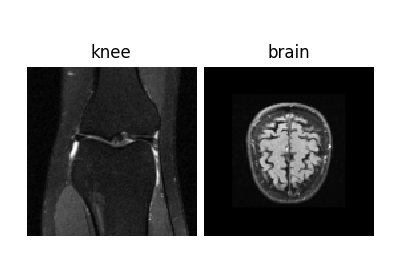PhysicsGenerator#
- class deepinv.physics.generator.PhysicsGenerator(step=lambda **kwargs: ..., rng=None, device='cpu', dtype=torch.float32, **kwargs)[source]#
Bases:
ModuleBase class for parameter generation of physics parameters.
Physics generators are used to generate the parameters \(\theta\) of (parameter-dependent) forward operators.
Generators can be summed to create larger generators via
deepinv.physics.generator.PhysicsGenerator.__add__(), or mixed to create a generator that randomly selects them viadeepinv.physics.generator.GeneratorMixture.- Parameters:
step (Callable) – a function that generates the parameters of the physics, e.g., the filter of the
deepinv.physics.Blur. This function should return the parameters in a dictionary with the corresponding key and value pairs.rng (torch.Generator) – (optional) a pseudorandom random number generator for the parameter generation. If
None, the default Generator of PyTorch will be used.device (str) – cpu or cuda
dtype (torch.dtype) – the data type of the generated parameters
- Examples:
Generating blur and noise levels:
>>> import torch >>> from deepinv.physics.generator import MotionBlurGenerator, SigmaGenerator >>> # combine a PhysicsGenerator for blur and noise level parameters >>> generator = MotionBlurGenerator(psf_size = (3, 3), num_channels = 1) + SigmaGenerator() >>> params_dict = generator.step(batch_size=1, seed=0) # dict_keys(['filter', 'sigma']) >>> print(params_dict['filter']) tensor([[[[0.0000, 0.1006, 0.0000], [0.0000, 0.8994, 0.0000], [0.0000, 0.0000, 0.0000]]]]) >>> print(params_dict['sigma']) tensor([0.2532])
- __add__(other)[source]#
Creates a new generator from the sum of two generators.
- Parameters:
other (Generator) – the other generator to be added.
- Returns:
A new generator that generates a larger dictionary with parameters of the two generators.
- average(n=2000, batch_size=1, **kwargs)[source]#
Calculate average of physics generator. :param int n: number of samples to average over, defaults to 2000 :param int n: number of samples to compute in parallel, higher means faster but more costly memory-wise, defaults to 1 :param kwargs: kwargs to pass to
stepmethod. :returns: A dictionary with the new parameters, that is{param_name: param_value}.
- rng_manual_seed(seed=None)[source]#
Sets the seed for the random number generator.
- Parameters:
seed (int, str) – the seed to set for the random number generator. If string passed, generate seed from the hash of the string. If not provided, the current state of the random number generator is used. Note: The
torch.manual_seedis triggered when a the random number generator is not initialized.
Examples using PhysicsGenerator:#
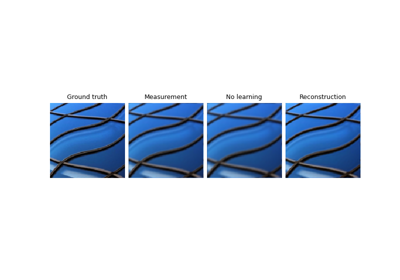
Imaging inverse problems with adversarial networks
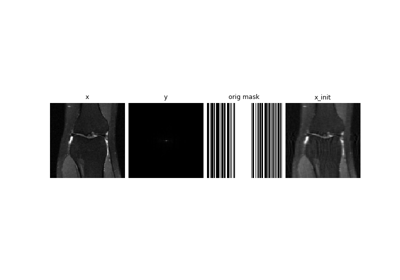
Self-supervised MRI reconstruction with Artifact2Artifact


